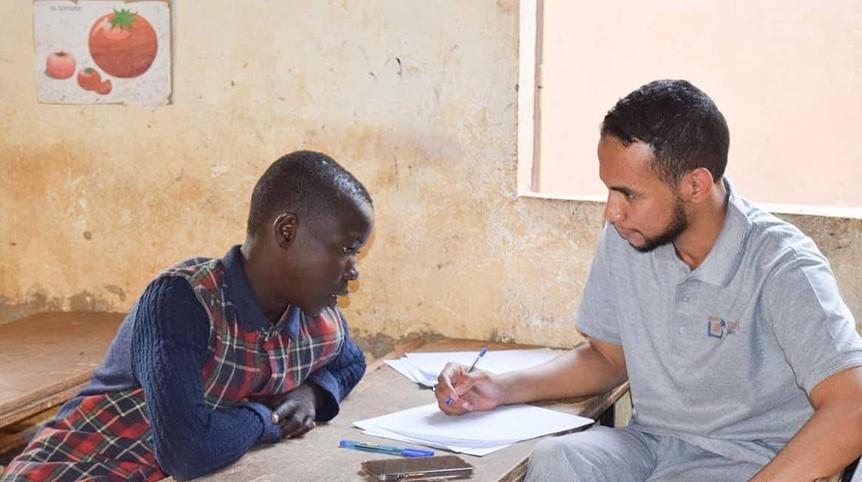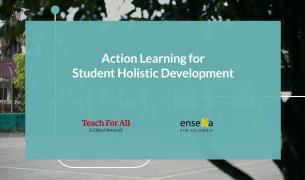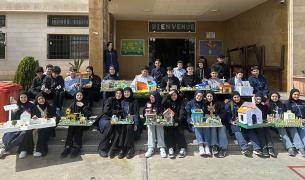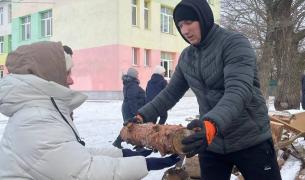Shoulder to Shoulder: Our commitment to protecting education in Niger

Lire cette histoire en français
On September 9, we mark the International Day to Protect Education from Attack, a day dedicated to raising awareness about the struggles of millions of children in conflict-affected countries. For me it's a day that highlights a powerful truth: education is not just a right, but a lifeline that helps generations survive crises and build a sustainable future. For Teach For Niger, this day is a call to action.
The education system in my country faces unprecedented challenges due to insecurity and attacks on education by non-state armed actors. With over 1000 schools forced to close in the last 6 months alone, more than 200,000 children have lost access to education. These attacks on education have also affected over 1,770 teachers across five regions—Tillabéri, Diffa, Dosso, Tahoua, and Maradi.
In this context, Teach For Niger was selected to co-lead the Safe Schools Group of the Education Cluster, a global humanitarian coordination mechanism, alongside Save the Children and UNICEF. For me, this opportunity to play a vital leadership role in enabling children to safely continue learning during crises is a profound recognition of the crucial contributions that local organizations play in shaping the humanitarian response in Niger.
Our work is deeply rooted in the principles of the Safe Schools Declaration, an international commitment launched in 2015. The declaration outlines essential global commitments to safeguard students, teachers, and schools, ensuring that learning continues even in the most challenging times. I’m proud that my government endorsed this declaration in June 2015, shortly after its launch in Oslo. By doing so, Niger committed to better protecting education during armed conflict and to restricting the military use of schools.
As co-lead of the Safe Schools Group, Teach For Niger commits to several key actions. Through engaging with government ministries, humanitarian donors, and private sector partners to highlight the urgent needs of crisis-affected children—using evidence from the field and testimonies from teachers and learners—we will intensify our advocacy and resource mobilization efforts to to amplify the situation in Niger and mobilize international solidarity and funding for Education in Emergencies. And by leveraging global platforms such as the Education Cluster, INEE, and the Safe Schools Initiative, we will collaborate closely with other organizations to protect and restore education in conflict-affected regions and ensure that national voices and local expertise are at the forefront of decision-making.
Despite immense challenges and our own limited resources, Teach For Niger has been on the frontline of this crisis. In 2025 alone, our teacher fellowship program has enabled 7,800 children to access quality, holistic education, including 3,200 host community learners in Zinder and 4,600 internally displaced and refugee children from Maradi and Diffa. While this contribution is modest compared to the scale of the crisis, it underscores the resilience and determination of our teacher leaders, whose efforts have extended far beyond the classroom to provide learning support for displaced and refugee children who would otherwise be left behind, and the other national actors working tirelessly to make a difference.
And today—on the International Day to Protect Education from Attack—I reaffirm our pledge: Teach For Niger will continue to stand with children, teachers, and communities to ensure that schools remain safe spaces for learning. The need for this work in Niger has never been more urgent.


